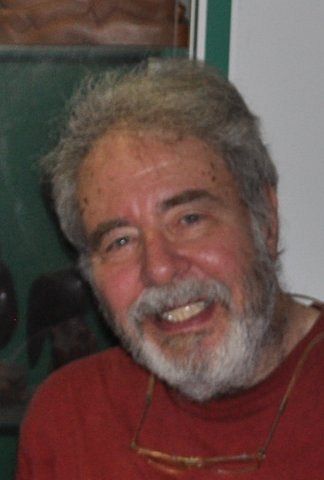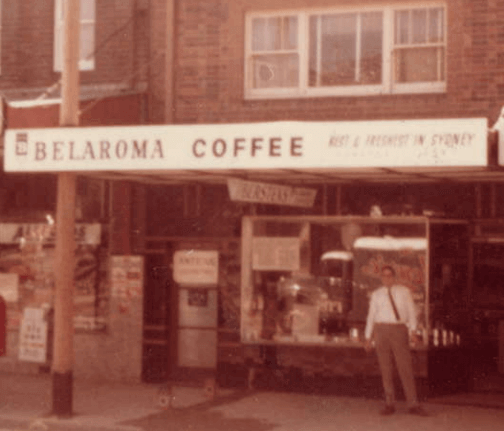About Ian Bersten
1939–2022

Where it began…
One of my jobs at CSR was to go to the Commonwealth Statistician and get some information. I was bored as hell doing this and used to bribe myself with a marzipan bar from the Nut Shop on Wynyard ramp. One day I met the owner, Paul Mendels, and asked him if he would supply me with chocolates if I opened a shop in Chatswood. He replied that I would be better off selling coffee. When I went to the CW Statistician I checked to see two things – if coffee was a growth industry and the import price for Kenya coffee which was 1/10 per pound. I ducked into David Jones food hall in George Street and saw that the retail price of Kenya coffee was 10 shillings and sixpence. I could see that there was quite a difference.
At lunchtime I went down to Cantarella Brothers (Vittoria Coffee) who had an office on the corner of Goulburn Street and Chinatown. I could speak Italian and went up the stairs and asked Orazio Cantarella if he would supply me with green coffee and he pushed me down the stairs. My immediate reaction was that this is an oligopoly and that nobody tells me I can’t do something. The decision was made in a flash to enter the coffee industry.
The next Saturday I went to the Public Library and looked at every book that they had on coffee. I had two piles of books on the table and when I left that evening, I told them to leave the books there because I would be back the next morning to read the rest. There wasn’t very much of real interest because people weren’t writing about what I really wanted to know but I saw an advertisement for coffee roasters in Vienna and I wrote to Otto Swadlo asking for information. When the letter came back I saw that if I contacted Elder Smith in Melbourne they might have a roaster there because three had been sold to them. They told me that two of them had been bought by Simos Spanopolous who started Bravo coffee. I bought the third and went to see George Kepper, an Estonian man who worked for Repins Coffee which had a few coffee shops in the city.
We talked for a while and he agreed to supply me with raw coffee. I found an empty shop at 457 Penshurst Street, Willoughby and rented it for $18 per week. In my naïveté I bought a machine to make gelato second hand so that I could have an income stream in summer when I imagined that sales of coffee would drop. I knew nothing. I made really good gelato. I had only seen it made once in Bar Riviera in Leichardt. I also sold French pates and chocolates.
I went to Melbourne where my brother Ray lived and he took me to Quist’s Danish coffee shop in Little Collins Street where Mr. Matthes, the owner, showed me how to roast coffee. He roasted everything very dark and had a very busy shop. I well remember his advice that if the taxation department ever asked about the roasting loss, it was always above 20%.

The first shop – 457 Penshurst Street, East Roseville
George Kepper was supposed to come on the first day and show me how to roast coffee but he didn’t turn up. I dropped my first batch of coffee into the roaster and roasted, knowing only that when I got near the end I should turn the heat down until I got the coffee colour I wanted. To my amazement the coffee was OK and I took $17.95 on the first day.
About Helian
Helian Enterprises is named for Ian and his wife Helen, who has edited all of Ian’s books. This web site was created by Helen and Ian’s eldest child, Ro.
